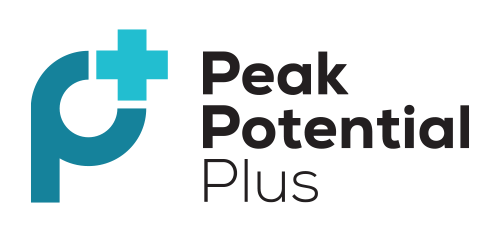Introduction
Hobbies are not merely pastimes or leisure activities; they play a crucial role in enhancing both productivity and mental health. Understanding the significance of hobbies in this context requires delving into their definition and exploring their profound impact on our overall well-being.
Definition of Hobbies
Hobbies encompass activities pursued for pleasure and relaxation during one’s leisure time. They range from creative pursuits like painting and writing to physical activities such as hiking or playing a musical instrument. Regardless of the specific hobby, the key is that it brings enjoyment and fulfillment to the individual engaging in it.
Importance of Productivity and Mental Health
Productivity refers to the efficiency with which tasks are accomplished, while mental health encompasses emotional, psychological, and social well-being. Both are essential components of a fulfilling and balanced life, influencing one’s overall quality of life and satisfaction.
Connection between Hobbies, Productivity, and Mental Health
Hobbies serve as a bridge between productivity and mental health by fostering a sense of purpose, satisfaction, and fulfillment. Engaging in activities we enjoy not only boosts our mood but also enhances our cognitive abilities, ultimately leading to improved productivity and overall well-being.
Benefits of Hobbies on Mental Health
Stress Reduction
Hobbies provide a much-needed escape from the daily stresses and pressures of life. Whether it’s painting, gardening, or playing a musical instrument, immersing ourselves in a hobby allows us to unwind and relax, promoting a sense of calm and tranquility.
Enhanced Mood Regulation
Regular engagement in hobbies has been shown to regulate mood and alleviate symptoms of anxiety and depression. The act of focusing on a enjoyable activity distracts the mind from negative thoughts and emotions, promoting feelings of happiness and contentment.
Increased Cognitive Functioning
Hobbies stimulate our brains and encourage neuroplasticity, the brain’s ability to form new connections and adapt to new experiences. Whether it’s solving puzzles, learning a new language, or playing strategy games, hobbies challenge our cognitive skills and keep our minds sharp and agile.
Benefits of Hobbies on Productivity
Improved Focus and Concentration
Hobbies require concentration and focus, training our minds to stay present and attentive. This heightened focus carries over into other areas of our lives, improving our ability to concentrate on tasks and accomplish them more efficiently.
Enhanced Creativity
Engaging in creative hobbies such as writing, painting, or crafting stimulates our imagination and encourages innovative thinking. This creative mindset can translate into increased problem-solving abilities and fresh perspectives in our professional and personal endeavors.
Increased Motivation and Engagement
Hobbies provide a source of motivation and inspiration, driving us to set goals and strive for personal growth. Whether it’s mastering a new skill or completing a project, the sense of accomplishment and progress fuels our motivation and keeps us engaged in our pursuits.
Finding the Right Hobby
Self-Reflection and Interest Assessment
Discovering the right hobby involves self-reflection and an assessment of our interests, passions, and talents. Consider what activities bring you joy and fulfillment, and explore opportunities to incorporate them into your life.
Trying Out Different Activities
Don’t be afraid to experiment with different hobbies until you find the ones that resonate with you. Attend workshops, join clubs, or take classes to explore new interests and expand your horizons.
Considering Time and Resource Constraints
When choosing a hobby, consider practical factors such as time and resources. Opt for activities that fit into your schedule and budget, ensuring that you can commit to them consistently without feeling overwhelmed.
Incorporating Hobbies into Daily Routine
Time Management Strategies
Integrate hobbies into your daily routine by allocating specific time slots for them. Treat your hobbies as non-negotiable appointments, prioritizing them alongside work and other responsibilities.
Creating Dedicated Hobby Spaces
Designate a dedicated space in your home or workspace for pursuing your hobbies. Whether it’s a corner of your living room for painting or a home office for writing, having a designated hobby space enhances focus and creativity.
Setting Realistic Goals and Expectations
Set achievable goals for your hobbies, taking into account your skill level and available resources. Break larger projects into smaller, manageable tasks, and celebrate each milestone along the way.
Balancing Hobbies with Work and Other Responsibilities
Prioritization Techniques
Balance hobbies with work and other obligations by practicing effective prioritization. Identify your top priorities and allocate time accordingly, ensuring that hobbies remain an integral part of your life without neglecting other responsibilities.
Setting Boundaries and Limits
Establish clear boundaries between work and leisure time to prevent burnout and maintain a healthy work-life balance. Set limits on the amount of time spent on work-related tasks, allowing ample time for hobbies and relaxation.
Flexibility and Adaptability
Be flexible and adaptable in your approach to balancing hobbies with other commitments. Recognize that priorities may shift over time, and be willing to adjust your schedule and expectations accordingly.
Cultivating Consistency and Persistence
Establishing Regular Practice Sessions
Consistency is key to maximizing the benefits of hobbies on productivity and mental health. Schedule regular practice sessions for your hobbies, committing to them even when you don’t feel motivated or inspired.
Overcoming Challenges and Obstacles
Expect challenges and setbacks along the way, and embrace them as opportunities for growth and learning. Whether it’s overcoming technical difficulties or facing creative blocks, perseverance is essential to achieving mastery in your hobbies.
Celebrating Achievements and Progress
Celebrate your achievements and progress in your hobbies, no matter how small they may seem. Recognize the effort and dedication you’ve invested in pursuing your passions, and use them as motivation to continue pushing forward.
The Role of Social Interaction in Hobbies
Joining Clubs or Groups
Explore opportunities to connect with like-minded individuals who share your hobbies. Join clubs or groups dedicated to your interests, fostering a sense of community and camaraderie.
Networking and Building Connections
Networking within hobby communities allows you to exchange ideas, tips, and experiences with others. Build meaningful connections with fellow enthusiasts, enriching your hobby experience and expanding your social circle.
Sharing Skills and Experiences
Share your skills and experiences with others, whether through teaching, mentoring, or collaborating on projects. Contributing to the hobby community not only enhances your own expertise but also fosters a sense of fulfillment and purpose.
Mindful Engagement in Hobbies
Practicing Presence and Awareness
Approach your hobbies with mindfulness and presence, focusing fully on the present moment without judgment or distraction. Immerse yourself in the activity at hand, allowing it to captivate your attention and engage your senses.
Using Hobbies as a Form of Meditation
View hobbies as a form of meditation, providing a respite from the chaos and noise of everyday life. Whether it’s gardening, knitting, or woodworking, immerse yourself in the rhythmic movements and sensory experiences of your chosen activity.
Fostering Mindfulness in Everyday Life
Extend the principles of mindfulness cultivated through hobbies to other aspects of your life. Embrace moments of stillness and reflection, finding beauty and joy in the simple pleasures of daily living.
Conclusion
In conclusion, hobbies play a vital role in boosting productivity and mental health by providing a source of fulfillment, relaxation, and personal growth. By incorporating hobbies into our daily routine, balancing them with work and other responsibilities, and cultivating consistency and persistence, we can harness their transformative power to lead happier, more fulfilling lives. So, whether it’s painting, gardening, or playing an instrument, don’t hesitate to explore and pursue the hobbies that bring you joy and fulfillment. Your productivity and mental health will thank you for it.



















